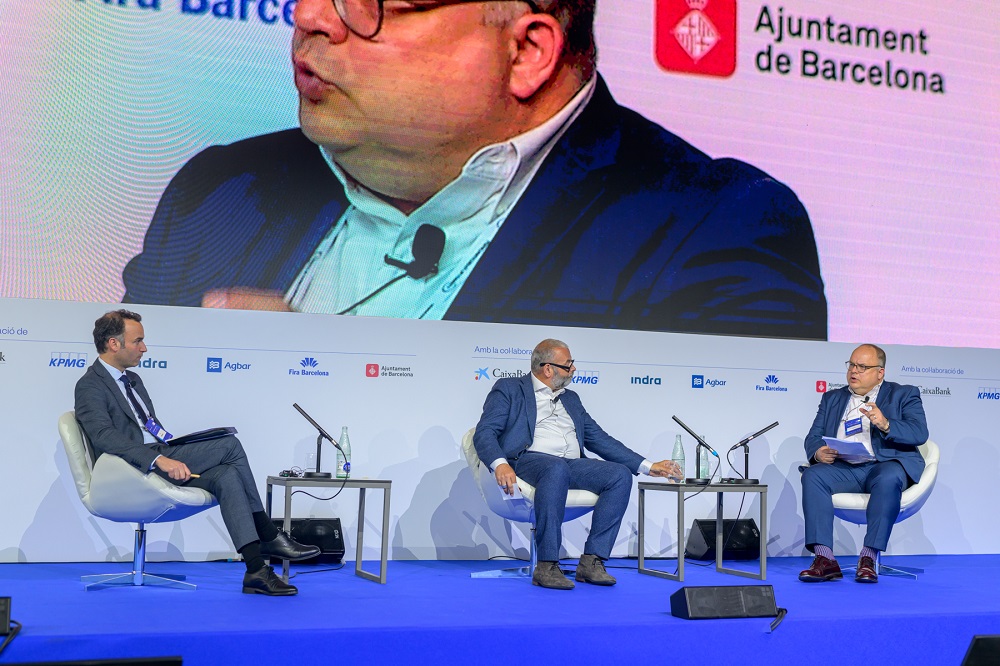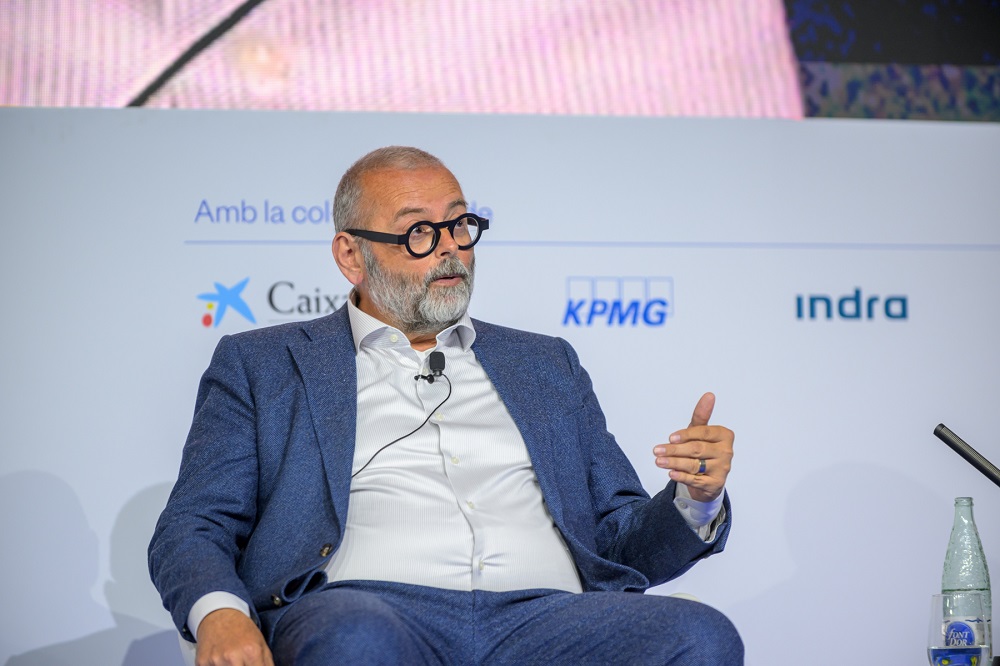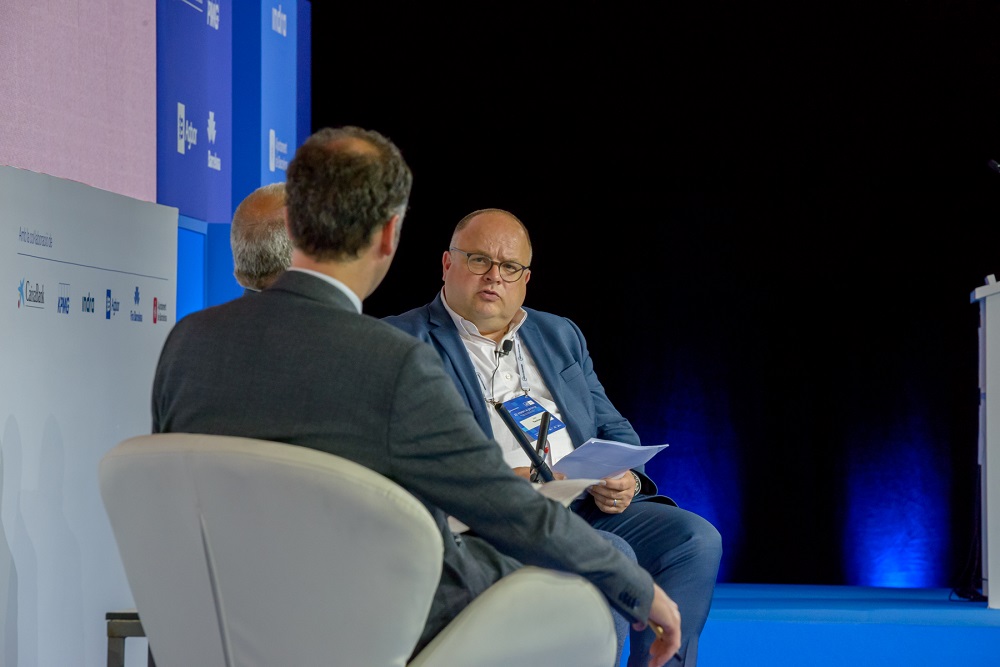Pol Morillas, member of the Board of Directors of Cercle d'Economia, introduced the round table with Jannis Emmanouilidis (Director of Studies and Deputy Chief Executive at the European Policy Centre) and Jan Techau (Director for Europe at Eurasia Group) by raising the question of whether the European elections in June 2024 may be the most important thing that the European Union (EU) has experienced, while highlighting the important decisions taken by the EU in recent times due to the Covid-19 pandemic and the response to the war in Ukraine.

Jannis Emmanouilidis, Director of Studies and Deputy Chief Executive at the European Policy Centre, highlighted the current context of extreme geopolitical and geoeconomic uncertainty and underlined challenges such as "the relationship with China and the political, green, digital and demographic transitions". He pointed out the importance of the elections to the European Parliament in terms of "strategic priorities" in a persistent environment of "permacrisis". He warned of the risk that the election results would favour far-right forces, which "could put additional pressure on national governments and hinder cooperation between member states at a juncture of growing challenges".
Jan Techau, Director for Europe at Eurasia Group, addressed the session with an emphasis on two issues. Firstly, the "decisive character" of the European elections to check "whether the populist right can assume, for the first time, a role in defining the agenda". Secondly, and as for the geopolitical landscape for the next five years, he referred to it as "the most tumultuous and challenging period in the history of the European Union". "These are the elections that will involve the election of the leaders who will lead the Union in this complicated context," he said.
The speakers agreed, in any case, on the relevance of elections that "must choose the leaders who will lead the EU in this difficult context".

Uncertainty in the European Parliament
In terms of the European Parliament, Emmanouilidis indicated that the traditional parties, such as the European People's Party and the Party of European Socialists, "will probably maintain their current level of support". He assessed that "the liberals could lose support, while the right-wing parties, in all their spectrum, are on the rise", although he conditioned everything to electoral participation.
Techau agreed with the assessment of the representative of the European Policy Centre and pondered that "cooperation between far-right parties is not certain, as shown by the recent rupture between France's Marine Le Pen and the AfD party in Germany. Although the far right will be influential, it is likely that centrist parties will need to negotiate with them to obtain an absolute majority in certain votes."
The "complex political situation" in the different member states and its possible impact on the election of European leaders was also addressed. Jannis Emmanouilidis highlighted the "lack of political leadership at both European and national levels", while Jan Techau stressed the "significant internal challenges, such as weak economic growth and fiscal constraints" faced by national governments in the region. In short, internal difficulties that "make it difficult to maintain a unified European vision" and in which "cohesion and leadership will be crucial to face external geopolitical pressures and preserve European unity after the elections", they agreed.

More political integration
The need to move forward with greater integration in EU policy areas was also discussed. Here Techau identified three key fields: foreign policy, fiscal policy and border control, although "they are difficult as a result of the resistance of member states to cede sovereignty". And he prioritized security and defense as the most urgent area, although he admitted that "this poses a significant challenge." Emmanouilidis verbalized that "integration in these areas is essential." And they advocated for "more investment" at the European level to succeed in these challenges but acknowledged the "resistance" of member states to provide more funds.
In relation to the enlargement process, the Director for Europe of Eurasia Group argued that "fiscal integration is more feasible if it is defined with a clear and limited purpose, as happened with the mutualized debt during the Covid-19 pandemic and could be repeated to support Ukraine." However, he said that "a general expansion of the EU budget through mutualised debt is unlikely due to the resistance of finance ministers".
Jannis Emmanouilidis said that enlargement has become a "geopolitical necessity, especially after the war in Ukraine". He argued that "the EU must reform itself internally not only because of enlargement, but also because of the challenges it faces". "Reform and enlargement must be thought of in parallel to maintain mutual trust between current member countries and candidates to join," he claimed.
The integration of Ukraine as a geopolitical project - which "will intensify the conflict with Russia" - the EU's relations with the United Kingdom or a possible re-election of Donald Trump in the United States - which "would have a negative impact on international relations" - were also the subject of reflection during the session.